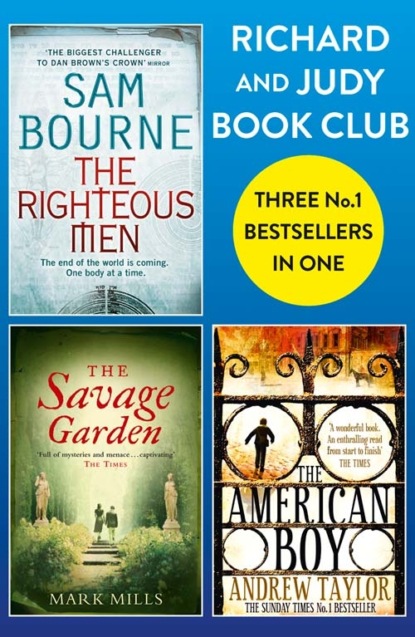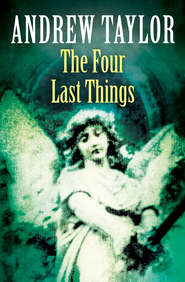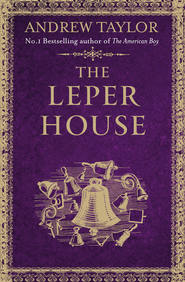По всем вопросам обращайтесь на: info@litportal.ru
(©) 2003-2024.
✖
Richard and Judy Bookclub - 3 Bestsellers in 1: The American Boy, The Savage Garden, The Righteous Men
Автор
Год написания книги
2018
Настройки чтения
Размер шрифта
Высота строк
Поля
“Aye. I have seen both used to great effect in the West Indies. There, naturally, the planters have a preference for the trap – with the gun, there is a great risk of killing the poacher. A dead slave is no good to anyone, but even a maimed one may still have years of useful work in him.”
“I use both devices in my covers, and I make sure the fact is widely known. In my experience, they act as a prophylactic. A poacher may often know where your keepers are and so avoid them. But they find it harder to pin down a well-laid trap, or a cunningly concealed spring gun.”
“Very true, sir,” rumbled Mr Carswall. “Mind you, you must move them frequently.”
“The labour is worth it. One must also bear in mind that when they catch a poacher in commission of his crime, the effect on the neighbourhood as a whole can be most salutary.”
Carswall chuckled. “We bagged a fellow from the village a few weeks ago. Damned near took his leg off.” He raised his glass, saw that it was empty and said to Mr Noak: “A glass of wine with you, sir.”
“With all my heart,” said Mr Noak politely. He had drunk more today than usually, and spoken less.
“Do you use traps in the United States, sir?” Sir George asked the American.
Mr Noak passed a hand across his forehead, as though wiping away unwelcome thoughts. “They are not uncommon in the South. I am more familiar with those designed for smaller prey.”
“Are they traps on similar principles to ours?” Sir George asked. “Spring-loaded, that is to say, and with jaws that snap shut?”
“Exactly so. There is quite an art to their use – even more, perhaps, when one is employing them to trap animals in the wild rather than humans breaking the law. Harmwell – my clerk, you know – became quite expert when he lived in Canada. We use them for marten, sable, mink, otter and beaver, principally, and also for bear.”
“I have seen a man enticed to a trap,” Mr Carswall said. “It is a simple matter: one merely lays a bait. The nature of the lure varies with the circumstances. In this case, it was a boat on the bank of a river.”
“Similar techniques are used with lesser breeds, sir.” Mr Noak sniffed his wine. “Though with them the hunter has a wider range of ploys at his disposal. In many cases, nothing as crude as bait is required. One relies instead upon the animal’s acute sense of smell.”
“Ah,” said Sir George, looking interested. “I have heard of fish oil being used for otter.”
“Yes, sir, fish oil is a favourite with us, too. We also use castoreum, musk, asafoetida, and oil of anise.”
“It is indeed ingenious,” said Captain Ruispidge. “To turn a creature’s strength into its weakness, its Achilles’ heel.”
“A glass of wine with you, Captain,” cried Mr Carswall. “Come, fill your glass. Shield, help the Captain to some wine.”
“So you do not use dogs?” Noak asked the table in general.
“Not in the covers, sir,” Sir George replied. “You cannot be sure they will leave the game alone, and there is always the risk they will fall foul of the traps.”
Carswall nodded. “We keep our dogs out of the covers as well. Mastiffs are valuable animals, one would not want them injured.”
He swallowed another glass of wine and the colour of his face darkened still further. For a moment, no one spoke. Then Noak turned back to Carswall.
“Have you visited British North America, sir?”
“Never. It is a country of many opportunities, I am sure, but I have never been north of New York.”
“But I understood you had interests in that part of the world,” Noak said gently. “During the late war, was not Wavenhoe’s Bank tolerably active there? And as a partner you must –”
“Pooh – as to that I know very little.” Carswall threw himself back in his chair so violently that the joints creaked. “Yes, sir, I believe we did have Canadian interests, but you must understand that I was not involved in the active direction of the bank or any of its concerns. Poor George Wavenhoe was the man for that. I was only a sleeping partner, as the commercial men say.”
“But Mr Wavenhoe would not have gone to Canada himself, surely?” Noak said. “He must have had a subordinate there, I imagine, someone to deal with the day-to-day running of the business.”
“Very likely,” Carswall agreed.
“In that case it may well have been someone I ran across,” Mr Noak observed. “I spent a number of weeks there on family business immediately after the war.”
“I cannot call to mind who represented us. If I ever knew.” Carswall’s eyes slid away from Mr Noak and glided swiftly round the table. Whether from the warmth or the wine, his face shone with perspiration. “As I say, I left all that sort of thing to my cousin Wavenhoe. He may have found a local fellow.” Carswall beckoned me. “Come, Mr Shield, a glass of wine with you, sir.”
I did not believe what Carswall had told Noak for a moment. He and I drank solemnly to one another and then Mr Carswall and Sir George fell into an impassioned conversation about the ingratitude of tenants.
Mr Noak looked at Captain Ruispidge. “I wonder if you number any officers of the Forty-First among your acquaintance?”
“No, sir. I was never in North America, whereas the Forty-First spent most of their time there.”
“I see.” Noak held Captain Jack’s eyes, and when he spoke next, he raised the volume of his voice a trifle. “No matter. It is merely that it occurred to me that you might have met my son.”
“He was in the Forty-First?”
Mr Carswall broke off his remarks to Sir George in mid-sentence and stretched out his hand for the wine.
“Yes, sir.” Mr Noak picked up an orange and squeezed it gently in his hand. “At the time of his death, he was a lieutenant.”
“Lieutenant Noak,” Captain Ruispidge said. “If I meet any officers of the Forty-First, I will inquire after him. You may depend upon it, sir.”
“They will not have heard of Lieutenant Noak,” Mr Noak said, his voice harsher than ever. “He was known as Saunders.”
He began to peel the orange with small, delicate fingers, working his way over the surface of every ridge and hollow. But he was looking at Carswall all the time.
“Saunders, sir? Saunders?” Carswall had abandoned the pretence that he was not listening. “I could not help hearing – you’ll not mind my asking, I hope – but – but – the circumstance was surely a trifle unusual? The son of a prominent American citizen holding the King’s commission? At a time when our two countries were at war?”
It was a shockingly ill-bred thing to have said, and I doubt even Carswall would have done it had he not been drunk. Sir George contemplated the contents of his wine glass, while Captain Ruispidge drummed his fingers on the table edge.
“The explanation is quite simple,” Mr Noak replied, his eyes still fixed on Mr Carswall’s face. “My late wife’s name was Saunders. In the Revolutionary War, her brother fought on the Loyalist side, and when the war was over he emigrated along with many others to Upper Canada. He and his wife had no children, and some years later they offered to adopt my son as their heir on condition that he took their name.”
“A common enough practice, I’m sure,” Sir George said. “Without it, half the great names of England would have died out generations ago.”
I chanced to look at Mr Carswall. He was sitting back in his chair, his hand raised to his face, his ruddy complexion mottled with patches of dirty white.
“My son had a taste for soldiering,” Noak continued calmly, “and Mr Saunders bought him a commission. Mr Saunders had served in the Forty-First as a young man. He was present at the capture of Martinique and St Lucia.”
“Did not Wellington himself serve in the Forty-First?” Captain Ruispidge asked.
Noak bowed his acknowledgement of the question, and perhaps of the Captain’s tact as well. “For a year or so, I believe, in ’88 or ’89. My brother-in-law was proud of the connection.”
Carswall glanced from side to side of the table. He seemed to have shrunk a little inside his clothes. He was aware, I think, somewhere in his drink-sodden mind, that his curiosity had overstepped the mark. But was there more to it? He looked to me as one who has received a blow, or at least a shock.
“Forgive me, sir,” he said slowly. “Forgive me, that is, if my question just then was ill-judged.”
Noak turned to him and made a civil inclination of his head. “Not at all, my dear sir.” He fed a piece of walnut into his mouth and chewed slowly.
“And now perhaps,” Carswall went on, speaking more quickly and stumbling over his words, “now it is time for us to join the ladies. I promised them they would have cards.”











